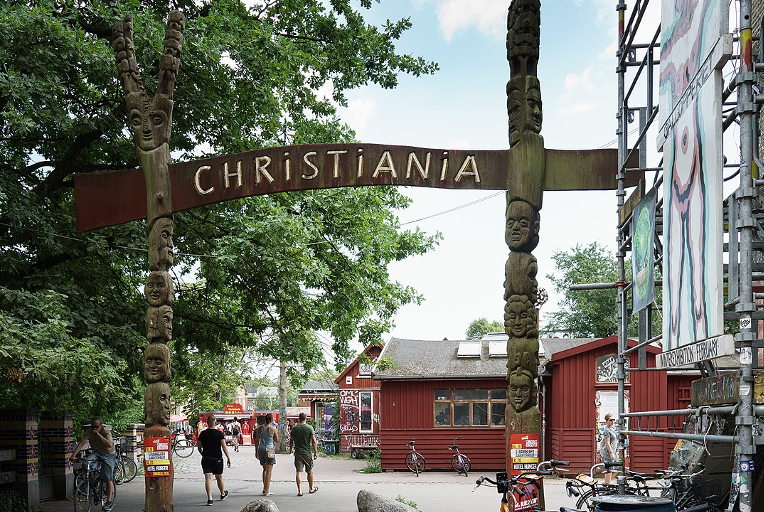We should not kid ourselves: the climate catastrophe is an epic war of the rich on the poor; corporate criminality on a global scale.~Dimitrios Roussopoulos[1]
There is little doubt that very few expected anything meaningful and productive to come out of the COP26. Even befor the beginning of the summit, climate scientists such as Peter Kalmus, author of Being the Change: Live Well and Spark a Climate Revolution, warned[2] that one of the summit’s main goals – “Net Zero by 2050” – is deeply flawed plan that provides cover for big oil and politicians to preserve the status quo. During the days of the COP26 activists deemed it a failure[3]. Even the very world leaders who organized it were skeptical from the very beginning of the potential outcomes[4]. And when from Global Witness looked through the list of participants, they found out that the fossil fuel industry, one of those most responsible for the climate crisis, has the largest delegation at the summit to ensure that its interests will be preserved[5]. Furthermore, historically speaking, the previous 25 COPs have also led to no results. In short, from wherever you look at it, there was nothing to really expect but more of the same.
The main reason for this is that these summits are intended to be led by the nation-state-capital complex, i.e. by extra-social structures that create and maintain a managerial class extremely prone to corruption and impunity. Even though national governments take power after elections, once in office, they have the time, the resources, and the tools to entrench themselves in positions of authority and ensure their reelection. As philosopher Cornelius Castoriadis suggests[6], once irrevocable representatives have been elected, their first and main concern is to secure their re-election. Thus, it must not surprise us that decades of such summits between national governments, capitalist corporations, and technocrats have led to no results, while the ecological crisis is deepening.
It is increasingly obvious that a radically different approach is needed. And for some time now cities have been demanding[7] to have more say over issues regarding climate change. This may offer a much-needed shift in perspective, because it puts the question of what should be done in this troubling time closer to the grassroots. It is the majority of people worldwide that have already begun to experience firsthand the consequences of climate change, and not the political and economic elites that have the luxury to hide themselves for a bit more before the catastrophe unavoidably reaches them at some point. The privileges of those in positions of power and wealth are directly linked to the systemic exploitation of both society and nature, so it is more probable that they will prefer to gamble our future on an extremely improbable sci-fi technology that will allow them to continue down the same path, rather than dismantling the current system.
Cities today, it is true, are run in a bureaucratic state-like manner that nurtures political and economic inequalities. But, historically speaking, this was not always the case. Unlike the centralized nature of the Nation-State, the City always contained a genuine democratic potential. From their inception until nowadays, cities have been revolving around two antagonistic cores: on the one hand, there were the temples of the powerful, from which empires and nation-states emerged; on the other, there was the public space (often in the form of public assemblies or local councils) that empowered, through deliberation and collective decision-making, the whole citizenry. It is the latter that contains the germs of a more meaningful and just response to the climate (and not only) crisis.
It is crucial to decolonize our minds from the grip of centuries of servitude, and reimagine our life in common beyond the parameters of the Nation-State-Capital complex. Societies have once flourished, as masterfully demonstrated by great thinkers like Bookchin[8] and Graeber[9], in self-managed cities. Such democratic experiences exist also today, most notably in the Zapatista caracoles and the Rojava confederation, where collective decision-making has allowed for feminist and ecological mindsets to flourish.
Instead of summits between national governments and multinational corporations, the time has come for transnational assemblies where delegates from autonomous municipalities can coordinate their actions. A climate confederation of confederations of some sort.
There can never be a guarantee that the “right” decisions will be made, but there are at least two important aspects that might immensely help. First, in one such directly democratic setting, the countless citizen-led ecological initiatives – driven by nothing else but the wellbeing of their communities – will have direct access to the decision-making processes, instead of trying to influence politicians whose very privileged position depends on the exploitation of society and nature.
Secondly, it will create the preconditions for the emergence of a new anthropological type that can be much more socially and environmentally responsible. By taking an active part in the management of its city, it will take responsibility for the future of its community, as well as of its natural environment, thus promoting a much-needed culture of citizen-stewardship. This is in stark contrast to the current passive, consumerist and wasteful anthropological type.
The summits of the powerful and wealthy have repeatedly failed us, as it could be expected. Isn’t it finally time to change the perspective from which we approach such a crucial issue like climate change? It is time for the radical democratization of cities, in order for a meaningful and resourceful plan for action from the grassroots to be initiated. Anything less than this is simply a waste of time.
[1] Dimitrios Roussopoulos: Political Ecology: System Change, Not Climate Change (Montreal: Black Rose Books, 2019), p8.
[2] https://www.theguardian.com/commentisfree/2021/sep/10/net-zero-2050-deadly-procrastination-fossil-fuels
[3] https://www.bbc.com/news/uk-scotland-glasgow-west-59165781
[4] https://www.theguardian.com/environment/2021/oct/25/boris-johnson-says-chances-of-cop26-success-are-touch-and-go
[5] https://www.bbc.com/news/science-environment-59199484
[6] http://www.athene.antenna.nl/ARCHIEF/NR01-Athene/02-Probl.-e.html
[7] https://www.google.com/amp/s/www.cbc.ca/amp/1.6219729
[8] See “The Ecology of Freedom: The Emergence and Dissolution of Hierarchy (Palo Alto: Cheshire Books, 1982)”
[9] See “The Dawn of Everything: A New History of Humanity (New York: Farrar, Straus and Giroux, 2021)”
Teaser photo credit: Freetown Christiania – entrance / exit By Neptuul – Own work, CC BY-SA 4.0, https://commons.wikimedia.org/w/index.php?curid=75160327






